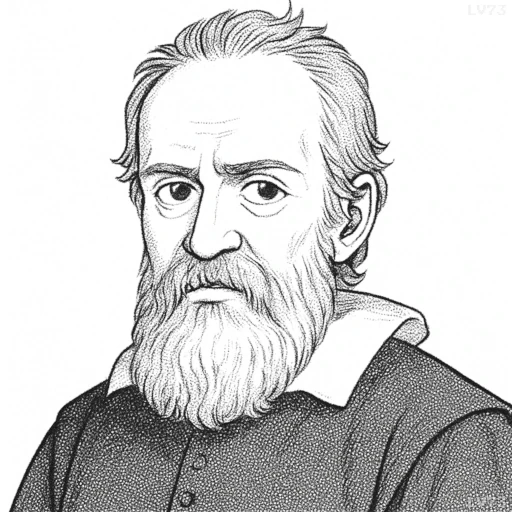“Where the senses fail us, reason must step in.”

- February 1564 – January 8, 1642
- From the Duchy of Florence (Italy)
- Physicist, astronomer, mathematician
table of contents
Quote
“Where the senses fail us, reason must step in.”
Explanation
This quote reflects Galileo’s belief in the importance of reason and critical thinking as tools to understand the world, especially when the senses are inadequate or misleading. While the senses are our primary means of interacting with the world, Galileo understood that they can be deceiving or limited—such as when we cannot see distant stars or understand complex natural phenomena. In these cases, reason and logical thinking must take over, allowing us to draw conclusions based on evidence and mathematical principles, rather than relying solely on sensory perception. Galileo’s approach to science was grounded in observation and empirical evidence, yet he also believed in the necessity of reasoning to interpret that evidence correctly.
In modern times, this idea is especially relevant in fields like scientific inquiry, where phenomena often exist beyond the capacity of the human senses. Consider the way we study subatomic particles or the vastness of the universe—these realms are beyond direct sensory experience, and scientists must rely on reason and advanced technologies to make sense of what they cannot directly observe. Whether it’s the application of theoretical physics to understand the nature of the cosmos or the use of data analysis to interpret complex systems, reason allows us to extend our knowledge beyond the immediate grasp of our senses.
Galileo’s call to use reason also speaks to the value of critical thinking in daily life. In an age where information is constantly flowing, the ability to reason and analyze data critically is more important than ever. For example, when faced with conflicting news stories or complex issues like climate change or public health, reason must guide our decisions, helping us discern what is reliable and true, even when our senses or emotions might lead us astray. Galileo’s words encourage us to rely on logic and evidence, providing a foundation for both scientific exploration and rational decision-making in everyday life.
Would you like to share your impressions or related stories about this quote in the comments section?


